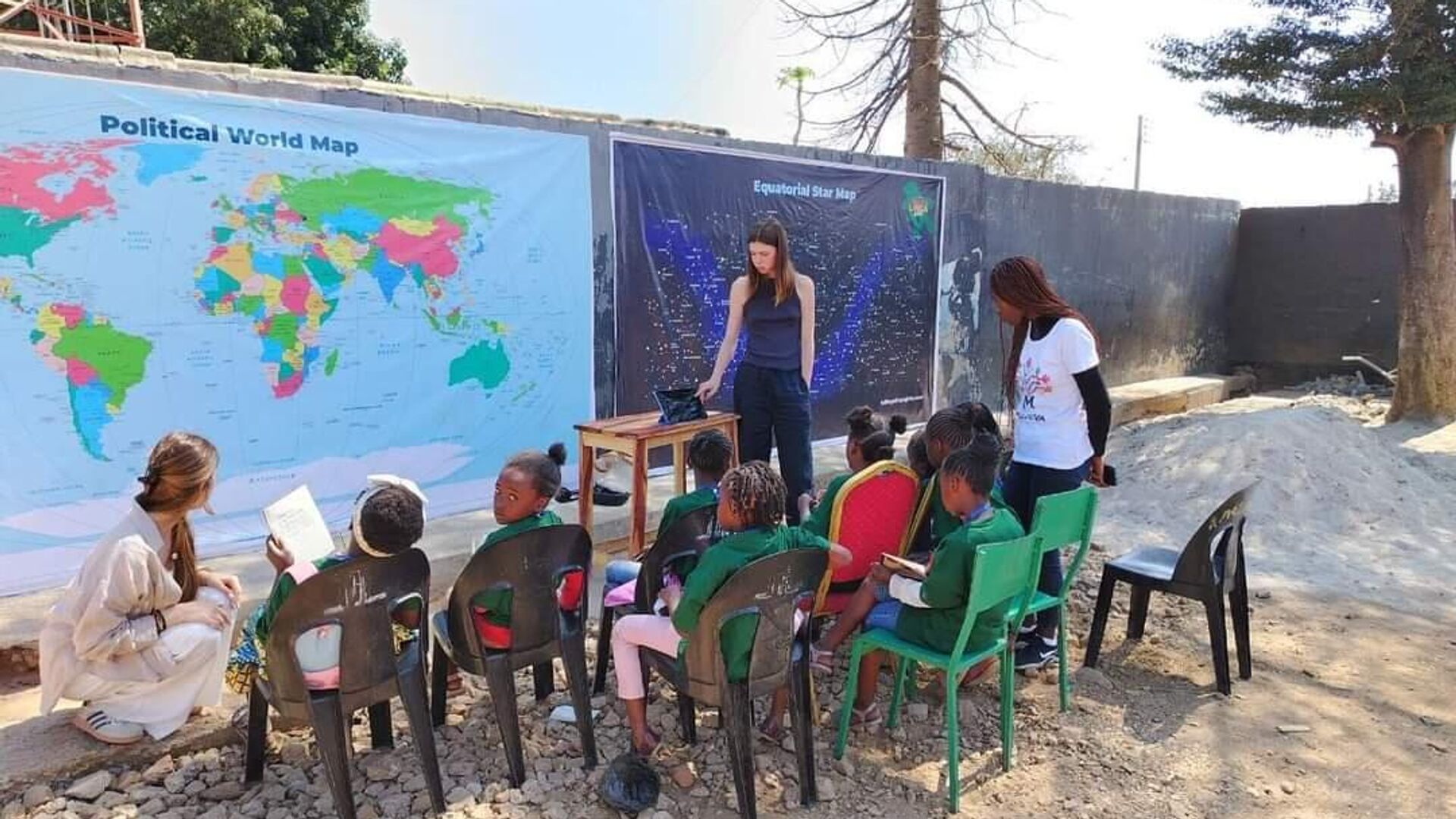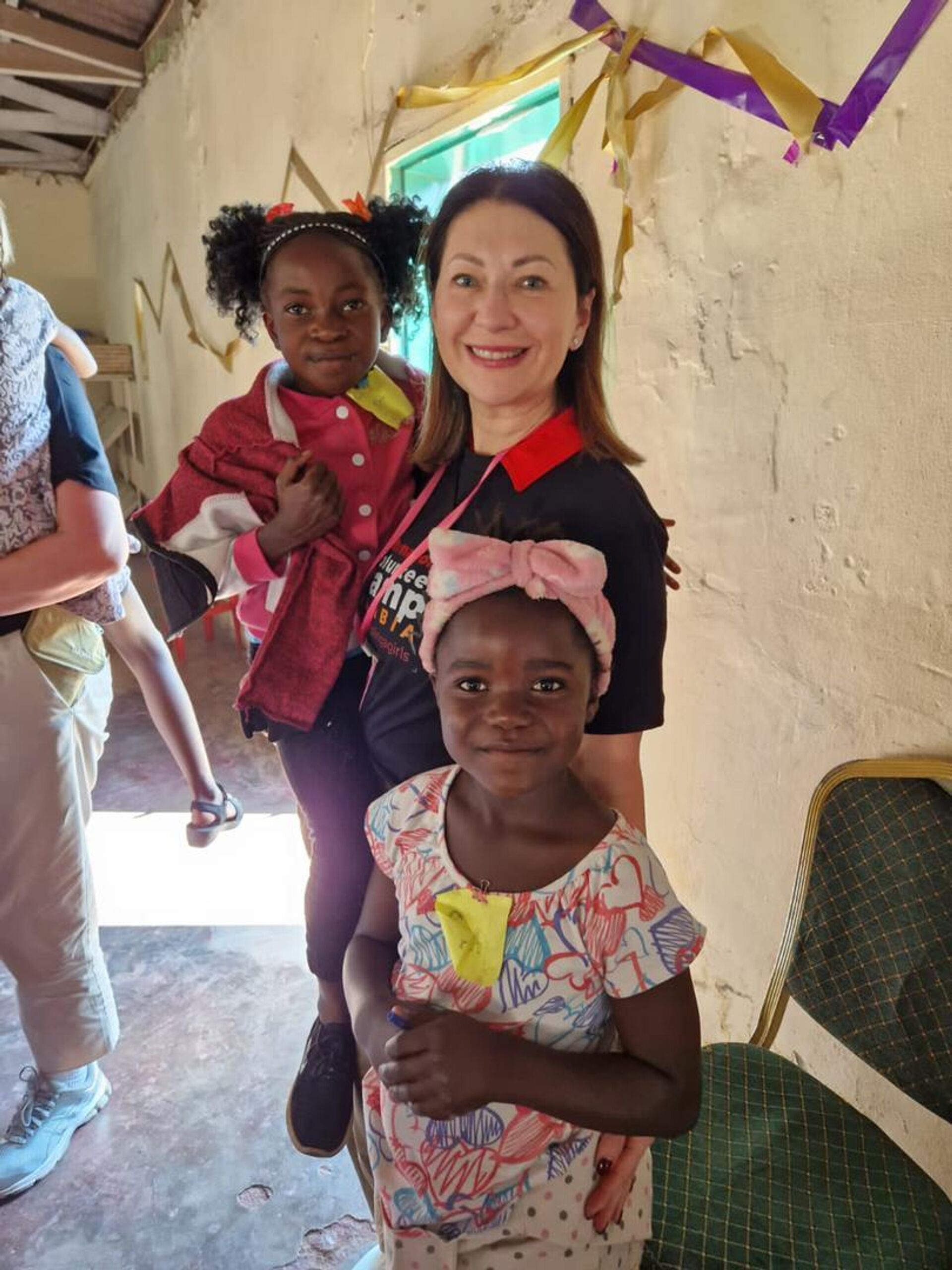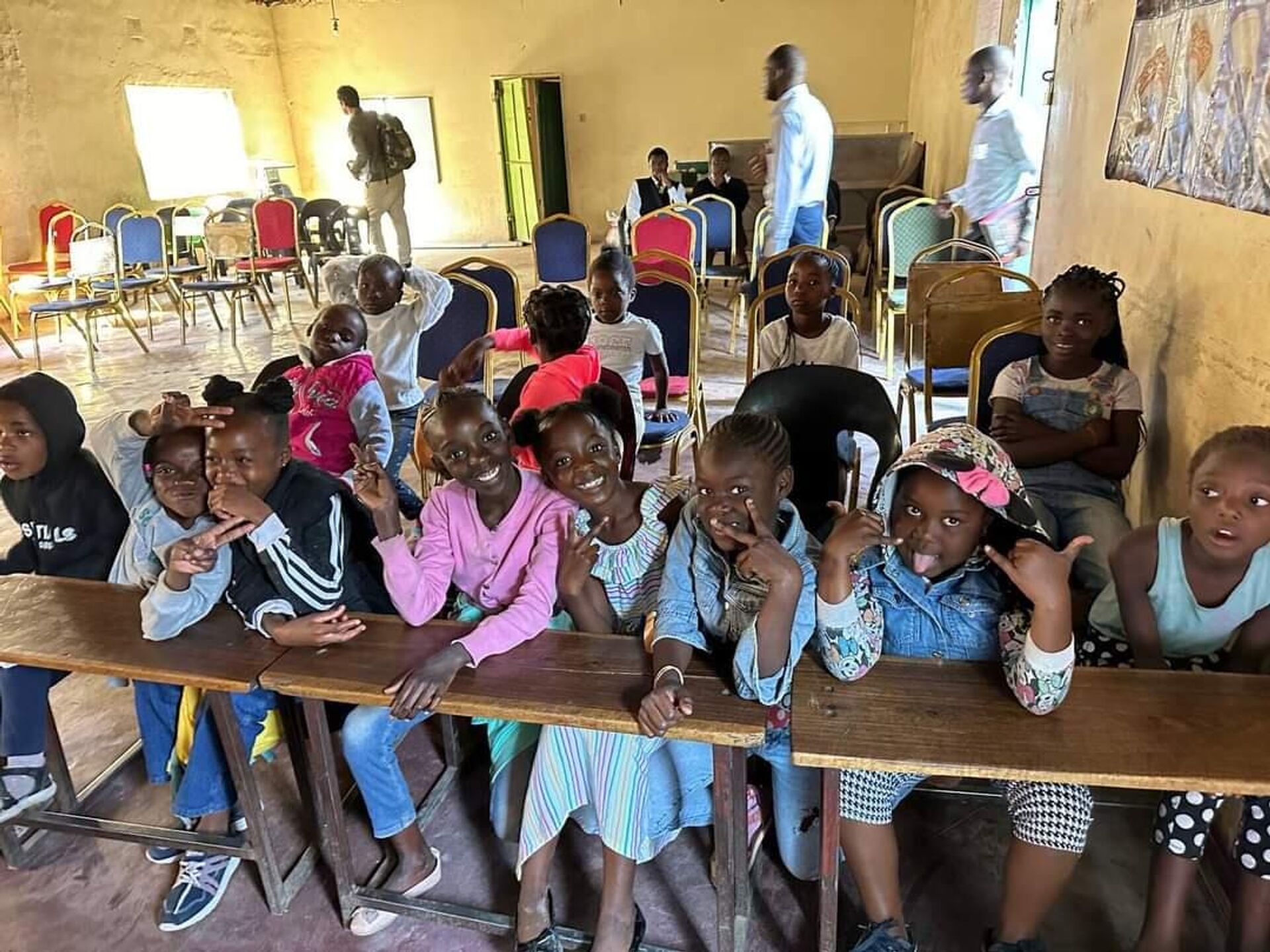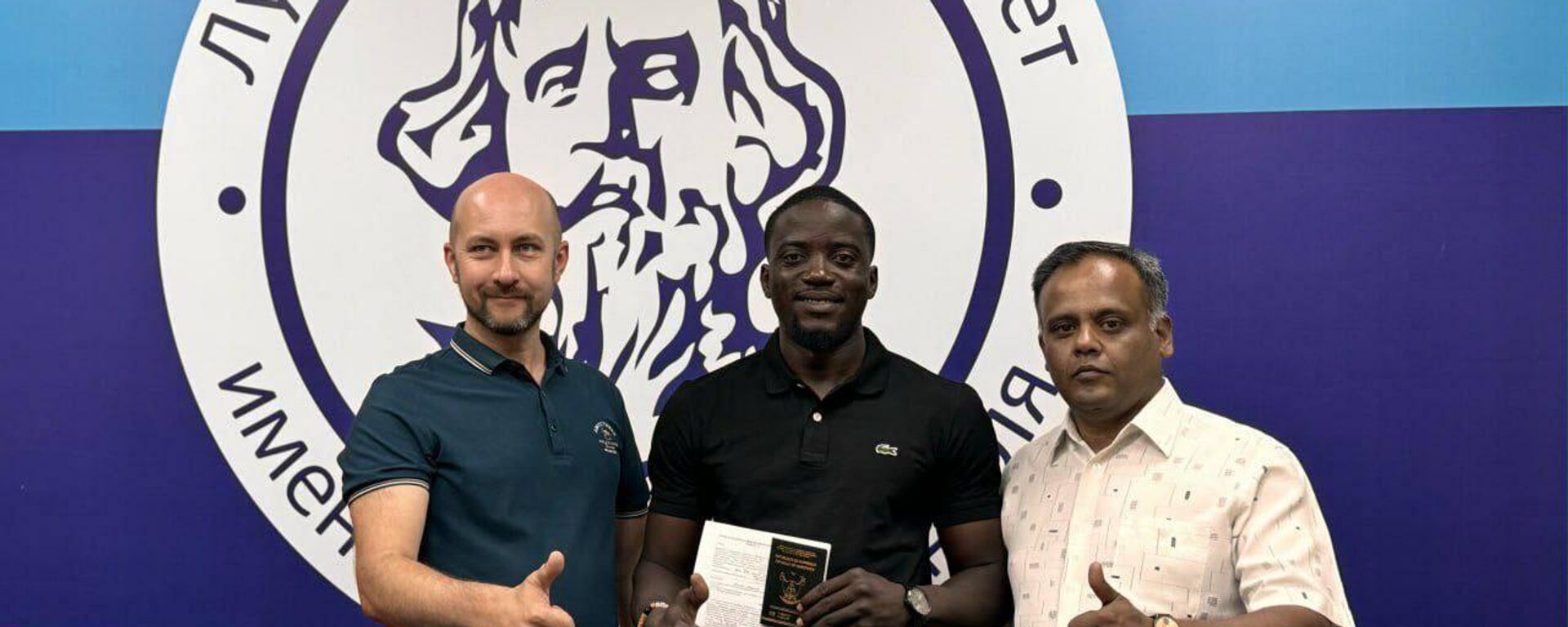https://en.sputniknews.africa/20240831/transforming-lives-how-russian-charity-is-empowering-young-girls-in-zambia-1068091639.html
Transforming Lives: How a Charity is Empowering Young Girls in Zambia
Transforming Lives: How a Charity is Empowering Young Girls in Zambia
Sputnik Africa
The Kalingalinga Girls organization in Zambia supports over 100 girls studying math, natural sciences, and creative activities. The "Angel Parents" program... 31.08.2024, Sputnik Africa
2024-08-31T19:32+0200
2024-08-31T19:32+0200
2024-09-02T18:09+0200
opinion
africa in details
russia
zambia
soviet union (ussr)
sputnik africa
southern africa
charity
education
russia-africa cooperation
https://cdn1.img.sputniknews.africa/img/07e8/08/1f/1068091817_0:101:1080:709_1920x0_80_0_0_99013b9fa0b4ed32c5eac31f15e7296a.jpg
Africa is the only place in the world where one can observe fundamental benefits with ordinary efforts, transforming the lives of those less fortunate for the better, Yanina Dubeykovskaya, founder of the Women Influence Community and philanthropist, told Sputnik Africa.Yanina, a Russian citizen, is also the patron of the Zambian charity project Kalingalinga Girls, a family project she founded with her teenage children Svetlana and Alexey in Lusaka in 2019. They started by helping 20 girls and now have "more than 100 girls under our patronage."Regarding the volunteers, Yanina expressed her gratitude to "each and every one of them," as well as to the parents of young volunteers who come to Zambia because they feel that their children deserve and are willing to take on the challenge of seeing real life, touching real lives, and making an impact on the stories of real girls and real people, in addition to the trivial lounging on the beach and enjoying life during their vacation.According to Dubeykovskaya, in poor African families, mothers often choose to invest in boys rather than girls. As a result, support for girls' education is necessary.Kalingalinga Girls works closely with the Golden Glad Secondary School, offering Saturday classes for additional education. These include creative activities like chess, library work, reading, and creative practices such as coloring and painting for young girls, the founder said.According to Dubeykovskaya, the charity's decision to introduce full scholarships was made because weekly classes were not enough to support a child's all-round development.The organization now has more than 80 girls in the program. Under the Angel Parents program, individuals, or families pay for specific girls to attend school.The project began when Dubeykovskaya's husband was the head of the Russian House in Lusaka. Yanina said she witnessed and took part in the selection process for the top students to attend Russian universities. For the best Zambian school graduates, it creates opportunities at a higher level, which makes it significant, she asserted. Dubeykovskaya said she was proud that, as a result of the efforts of the Russian House, they were able to enroll the first two theater majors in acting programs at the top theater schools in Russia. When they return to Zambia, she hopes they will establish a national theater and a national film industry.The Soviet Union was always supportive of African independence, she remarked.For 14-year-old Ruth Tembo, a student at Kalingalinga Girls who never attended school until she turned 13, Yanina became a real mother figure.Now, Ruth studies science, English, and mathematics and is learning English and Russian to become a lawyer one day.
https://en.sputniknews.africa/20240831/first-cameroonian-student-in-lugansk-challenges-mainstream-medias-view-on-russia-1068087035.html
russia
zambia
soviet union (ussr)
southern africa
Sputnik Africa
feedback@sputniknews.com
+74956456601
MIA „Rossiya Segodnya“
2024
News
en_EN
Sputnik Africa
feedback@sputniknews.com
+74956456601
MIA „Rossiya Segodnya“
Sputnik Africa
feedback@sputniknews.com
+74956456601
MIA „Rossiya Segodnya“
africa in details, russia, zambia, soviet union (ussr), sputnik africa, southern africa, charity, education, russia-africa cooperation, cooperation, culture, youth, students, women's empowerment
africa in details, russia, zambia, soviet union (ussr), sputnik africa, southern africa, charity, education, russia-africa cooperation, cooperation, culture, youth, students, women's empowerment
Transforming Lives: How a Charity is Empowering Young Girls in Zambia
19:32 31.08.2024 (Updated: 18:09 02.09.2024) The Kalingalinga Girls organization in Zambia supports over 100 girls studying math, natural sciences, and creative activities. The "Angel Parents" program provides scholarships for more than 78 girls to attend school, gain confidence, learn solid skills, and even learn self-defense.
Africa is the only place in the world where one can observe fundamental benefits with ordinary efforts, transforming the lives of those less fortunate for the better, Yanina Dubeykovskaya, founder of the Women Influence Community and philanthropist, told Sputnik Africa.
Yanina, a Russian citizen, is also the patron of the Zambian charity project Kalingalinga Girls, a family project she founded with her teenage children Svetlana and Alexey in Lusaka in 2019. They started by helping 20 girls and now have "more than 100 girls under our patronage."
"All girls, all kids need support; it's not depending on where they are living," the philanthropist replied when asked why Russian volunteers come all the way to Zambia to help the local children.
Regarding the volunteers, Yanina expressed her gratitude to "each and every one of them," as well as to the parents of young volunteers who come to Zambia because they feel that their children deserve and are willing to take on the challenge of seeing real life, touching real lives, and making an impact on the stories of real girls and real people, in addition to the trivial lounging on the beach and enjoying life during their vacation.
According to Dubeykovskaya, in poor African families, mothers often choose to invest in boys rather than girls. As a result, support for girls' education is necessary.
"I'm very much focused on this sensitive issue when we see the gender gap between girls and boys in their possibility to receive a good education and to build equal opportunities to work and to be professional," she emphasized.
Kalingalinga Girls works closely with the Golden Glad Secondary School, offering Saturday classes for additional education. These include creative activities like chess, library work, reading, and creative practices such as coloring and painting for young girls, the founder said.
According to Dubeykovskaya, the charity's decision to introduce full scholarships was made because weekly classes were not enough to support a child's all-round development.
"We understood that only once a week is not enough for any kind of sustainable development of girls. We started a program of full scholarships for girls who are studying in this Golden Glad secondary school," she explained. "First, I paid for scholarships myself, but then we started a program, and we call it 'Angel Parents.'"
The organization now has more than 80 girls in the program. Under the Angel Parents program, individuals, or families pay for specific girls to attend school.
"They have interpersonal connections, like communication," Dubeykovskaya said. "They exchange videos; they exchange greetings, some kind of postal cards. So they build communication between them. Then we added classes for mothers, for teenagers mothers, and for mothers of our girls, because when you work with a child, you should also work with a family."
The project began when Dubeykovskaya's husband was the head of the Russian House in Lusaka. Yanina said she witnessed and took part in the selection process for the top students to attend Russian universities. For the best Zambian school graduates, it creates opportunities at a higher level, which makes it significant, she asserted.
"Even in Russian House in Zambia, we try to push them to understand the culture, to appreciate people, to be ready to enjoy student life in Russia, not only teach them Russian language," she added.
Dubeykovskaya said she was proud that, as a result of the efforts of the Russian House, they were able to enroll the first two theater majors in acting programs at the top theater schools in Russia. When they return to Zambia, she hopes they will establish a national theater and a national film industry.
"There are a lot of people who still think that Africa is a very special place to touch real life, to touch the truth. I also think that it is the best place to feel from where we started as humanity and to see in a new aspect our ordinary life. After Africa, everybody becomes another person," she noted.
The Soviet Union was
always supportive of African independence, she remarked.
"And I think that Africa first is our common mother. We don't have any actual conflicts between our cultures and countries; that's why we are close. I think that Africa is the mother of humanity. [...] When you are in Africa, when you see African culture, African traditional masks, and African traditional dancing, you always feel that it is something about yourself," she explained.
For 14-year-old Ruth Tembo, a student at Kalingalinga Girls who never attended school until she turned 13, Yanina became a real mother figure.
"It is important because it's giving us the opportunity to be in school," Tembo told Sputnik Africa, adding that "she was sad that she was living and didn’t know anything" before she became part of the project.
Now, Ruth studies science, English, and mathematics and is learning English and Russian to become a lawyer one day.




